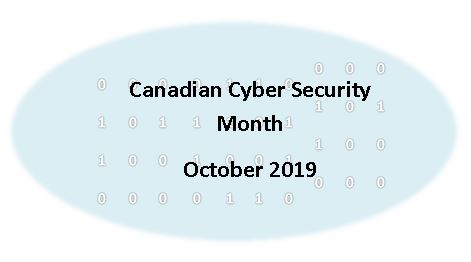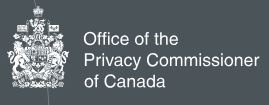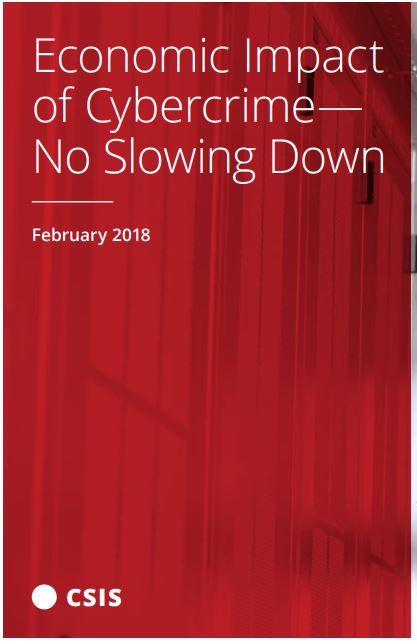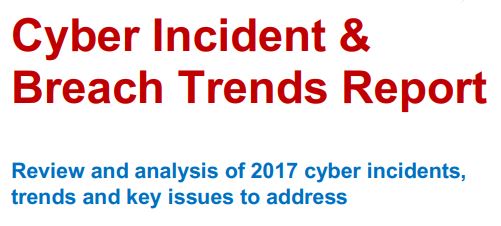Given the massive amount of discussion that everyone hears about cyber security sometimes the physical protection of data is overlooked when considering the importance of the information every business holds. This is a natural occurrence since so much of what is stored is done so in electronic formats.
Read MoreOffice Document Strategies Blog
Physical Security Still Important In Protecting Data
Posted by Lee Kirkby on Wed, Oct 23, 2019 @ 07:10 AM
Topics: Paper shredding, shredders, cyber security
Topics: Canadian IT, encryption, ransomware, malware, it security, cyber security
Canadian Data Breach Law Comes Into Effect November 1
Posted by Lee Kirkby on Wed, Oct 24, 2018 @ 07:10 AM
A key component of Canadian Privacy Law which was created in 2015 come into full effect on the first day of November this year. The provisions of the law deal with the consequences of failing to notify the Privacy Commissioner when specific conditions occur in the event of a privacy data breach.
Many Canadian companies are not going to be aware of the specifics of this legislation as a lot think that they either do not hold data that would be of concern or that they have taken adequate steps to protect their information. Of course in many instances this may be true but unfortunately as stories come out about the breaches that occur they show that many organizations can be hit even with due concern having been taken.
3 Questions to Ask Yourself about Data Breaches
- Does your company have a data breach response plan?
- Have you identified the criteria you will apply to determine whether the breach meets the test of real risk of significant harm?
- Do you have a decision tree to determine who will decide on notification?
What is important here is what you do in the event there has been a breach.The legislation anticipates that most organizations will take reasonable steps to protect their data from hackers and out right theft. It does not generally penalize the breach itself. What it penalizes is the lack of notification of those affected by the breach and lack of notification of the appropriate authorities so the public can be protected. Being unaware of the requirements is not going to be seen as a defense.
Unfortunately in the instance where there is a breach too often the tendency might be to try to ignore it or to hide it since it can be both embarrasing and potentially could lead to costs associated with notification of those affected.
Read MoreTopics: ransomware, malware, cyber security
Canadian Government Plans New Cyber Security Strategy
Posted by Lee Kirkby on Wed, Jun 20, 2018 @ 07:06 AM
Stories continue to abound about cyber attacks, hacking and new potential threats to the security of Canada's IT systems. For many SMEs the thoughts of addressing the many potential threats, while they work hard to provide business growth, good service to customers and returns on investment, is pretty challenging. Since for many companies the IT environment is still kind of unknowable territory especially when looking at security issues it is not hard to accept that they can become overwhelmed by all of the negative news.
Read MoreTopics: Canadian Legislation, Canadian IT, it security, cyber security
Proposed Federal Election Act Changes Address Election Hacking
Posted by Lee Kirkby on Wed, May 23, 2018 @ 07:05 AM
The Canadian Federal Government has introduced revisions to the Canada Elections Act designed to address concerns about how electronic interference affects future voting. Given all the controversy about US, European and other jurisdictions being affected by both individual and country sponsored hacking during elections this is a timely and important topic for Canada given the numbers of elections coming over the next couple of years,
Read MoreTopics: Canadian Legislation, Canadian IT, cyber security
Anyone watching the political situation in the US knows that cybercrime has become more than just an economic tool. The political use of cybercrime is potentially even more critical to the world than the economic impacts but understanding this should not have any of us forget how critical the dollar costs are.
Read MoreTopics: Canadian IT, encryption, ransomware, WIFI Security, malware, it security, cyber security
Internet Society Reports 2017 Cyber Incident Trends
Posted by Lee Kirkby on Thu, Feb 8, 2018 @ 07:02 AM
The Online Trust Alliance issued its tenth annual report on cyber incidents and breach readiness in late January 2018.
A key feature of the report is the amount of impact that ransom type attacks have had in 2017 both in direct malware and other elements like threatened denial of service events.
It summarizes that preparation and constant diligence are key in avoiding cyber threats.
Read MoreTopics: ransomware, malware, it security, cyber security
All of the controversy around the issues of the Russian intervention in the US and other country's elections sometimes covers how important cyber security and the ability of IT networks to be secure is to everyday activity. If the general media was only focused on the political consequences of hacking of IT systems we would not hear about how some of the daily things we do are affected.
Some headlines which show Canada is not immune to the issues:
Canadian SMBs hit by ransomware paid out $5.7 million over 12 months: Survey
Interac outlines how it plans to secure Canada's digital identity service
Cyber security a focus of UN Internet governance conference
Canadian firm pays $425,000 to recover from ransomware attack
The costs associated with building systems, acquiring protection software and spending time to keep on top of current threats are all things which we as consumers end up paying for as they get incorporated into the costs of the goods and services which we use.
A recent CNN summary itemizes some of the biggest stories which have occurred including the 145 million accounts from the Equifax hack, the announcement the total of 3 billion Yahoo accounts were hacked in 2013 and closer to home the fact an Ancaster hacker connected to Russians has now pleaded guilty to hacking up to 500 million Yahoo accounts from 2014.
These kinds of events kind of make use glaze over as we figure there is nothing we can do to protect ourselves but we do know that Canadian organizations are forced to spend large amounts to attempt to build protections for us.
We end up having to deal with less convenient systems as things like double authentication security start being applied to our online accounts. Cumbersome conventions which force us to not be able to directly connect to some financial activity without using fairly difficult security procedures frustrate people and lead them to avoid using electronic systems.
Of course the convenience provided by electronic communications including credit and debit transactions hook most of us into continuing to stay connected and to hope that our information will be held secure by the organizations we buy from. Every effort which can be made to help secure online transactions (which include most cash register systems) will pay dividends in consumer confidence hopefully.
Looking ahead to 2018 we can only hope that cyber security will remain a high priority for the legitimate IT industry and that break throughs can occur which will frustrate those who seek to illegitimately use electronic data.
Lee K
Photo credit: By ITSveronica (Own work) [CC BY-SA 4.0 (https://creativecommons.org/licenses/by-sa/4.0)], via Wikimedia Commons
Read More
Topics: data security, Canadian IT, cyber security












